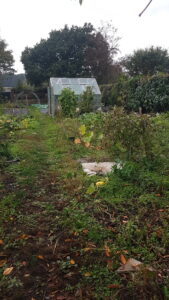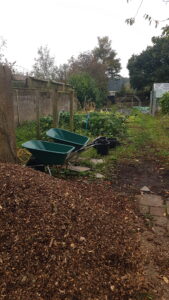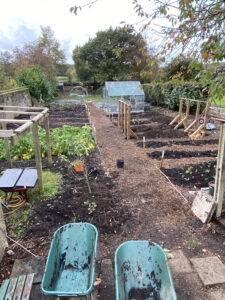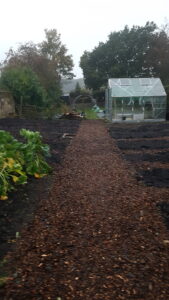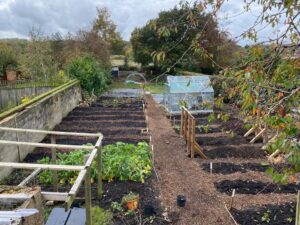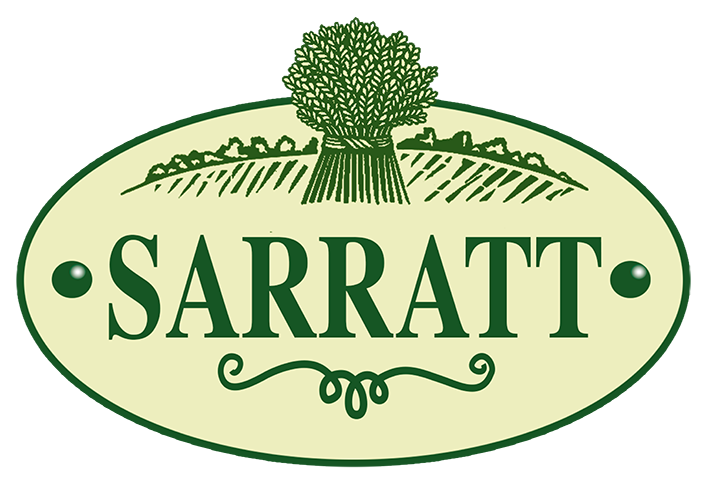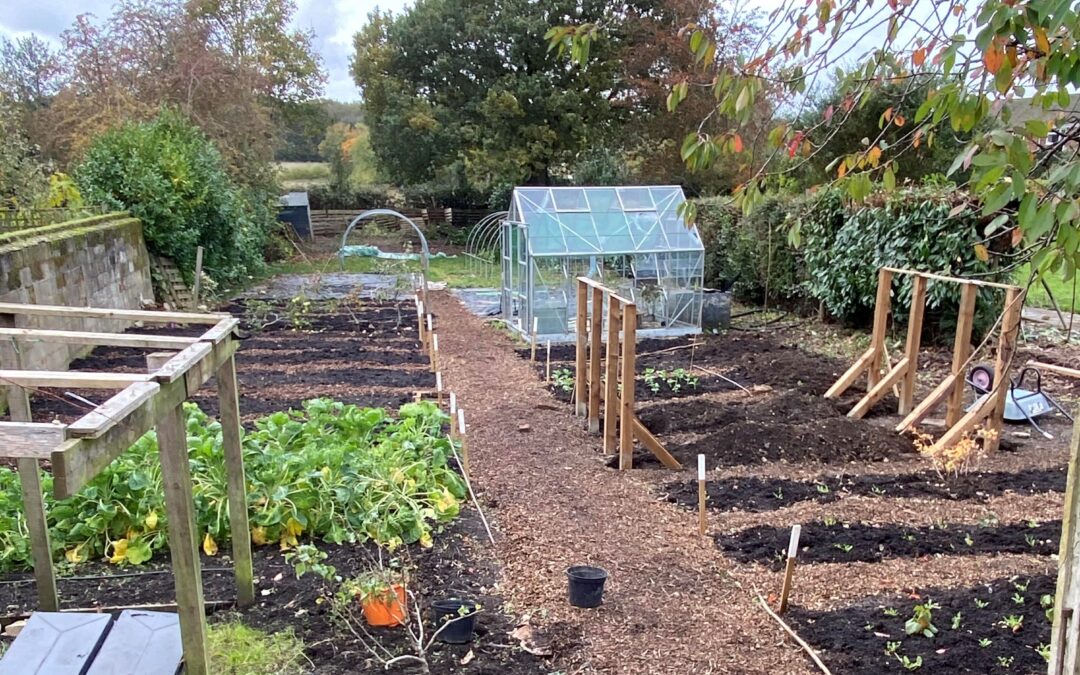SARRATT COMMUNITY GARDEN
The garden behind the shop is a big space which has been used for very different purposes over the years.
Given the central role the shop plays in village life we have put together a small group who wish to create a Community Garden.
This will be open for the use of the community for groups to gather, as outside space for one and all to enjoy, a space where anyone from the community can come and enjoy nature and the joys of a garden.
Volunteers are doing all the work and we will have a rota of folk coming to the garden to maintain what has been started and to nurture and work on what we grow and produce. Everybody is welcome to volunteer – tasks range from weeding to cutting hedges, from shovelling mulch to picking flowers to sell in the shop. It’s not all hard work!!!!
Twenty volunteers have spent the last couple of weeks getting all the basics sorted and the garden ready for winter hibernation. From November we will have a morning every week where everyone is welcome to come help and enjoy the space.
The garden has been brought into being with several complementary objectives in mind. Many people are feeling lonely, disconnected from others and from the earth, and are struggling with their mental as well as physical health. At the same time we are living in a time of widespread environmental degradation, with pressure on natural resources, a changing climate, and a global loss of biodiversity. Our aim is to do something rather than nothing, and, in doing so, benefit the local community and perhaps contribute to a wider societal change.
The garden will produce the most local fruit, veg and flowers possible! Not only will this cut out many hundreds of food miles, but the food grown will be rich in nutrients and as fresh as possible to benefit human health – the fresher the produce, the better it is for you. All of this will be on sale in the shop.
Growing methods
These will be wholly organic, to fit with the sustainable nature of the project. We will not be digging the soil (unless to remove tenacious weeds), with the aim of preserving and enhancing the health of the soil. One teaspoon of soil contains many billions of micro-organisms, including bacteria and fungi, as well as visible organisms such as earthworms, and these will be as much our priority as the above-ground crops. Plants form mutually beneficial relationships with these micro-organisms, so the healthier the soil, the healthier the plants! We will be adding organic matter in the form of leafmould, compost, and manure to ensure that the soil remains fertile, and we will grow green manures in any spaces that are temporarily empty. Making and spreading compost will be a regular job, as will bringing in additional mulches from outside the garden. We will be growing approximately 50% vegetables, 25% fruit, and 25% cut flowers. Flowers will also be grown specifically with pollinators in mind, and to enhance the beauty of the area.
Wider Environment
When treated well, not dug, and given carbon rich compost, the soil can become a net ‘sink’ of carbon, sequestering carbon away from the atmosphere and storing it in a stable form (eventually as humus). By prioritizing the health of our soil, we can feel confident that we are contributing a tiny amount towards reducing Sarratt’s sizeable carbon footprint, whilst also creating a fabulously productive environment for plants to grow. Plastics and non organic matter will be avoided as much as possible.
People
It is becoming clear that gardening is not only good for the body, but also good for the soul, and gardening in the company of other people, even more so (for reference, look at Sue Stuart Smith’s book ‘The Well gardened Mind’). This is not a therapeutic garden, but we hope it will be used as a valuable resource by anyone who feels they would benefit. That might be someone who once did a lot in their own garden, but have had to let it go, someone who has never gardened, but would like to try in a place where they will be given guidance , or someone who would like to meet local people and do something for their community. All are welcome. We just ask for respect for our way of gardening, and respect for others working in the garden.
For further information about the Community Garden, or to volunteer, please contact:
Alan Milsom ([email protected])
Flo Garvey ([email protected]
To Donate to the project visit www.sccf.org.uk and just click on the Donate button at the top of the front page
or email Angela at: [email protected]
Thank you.
